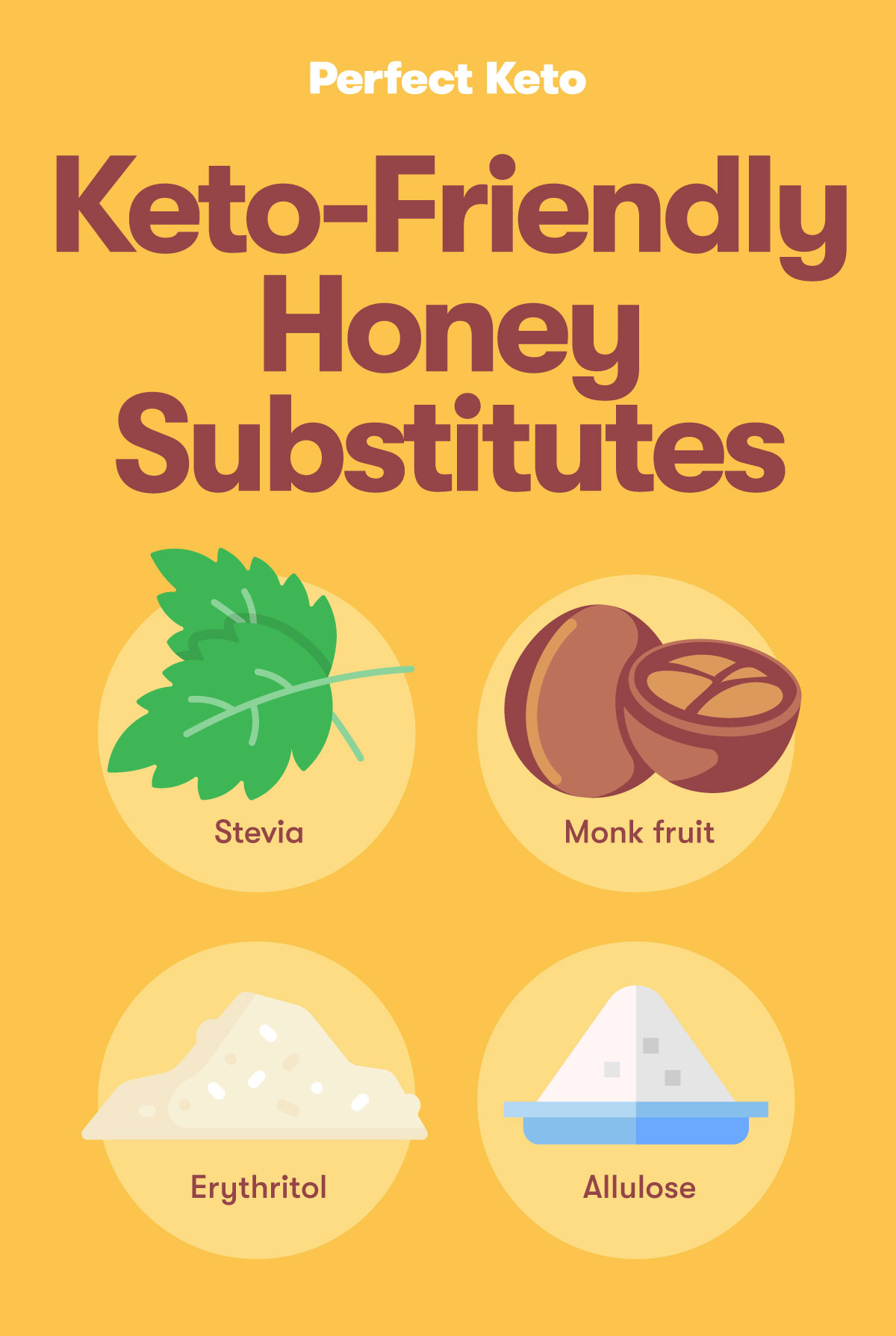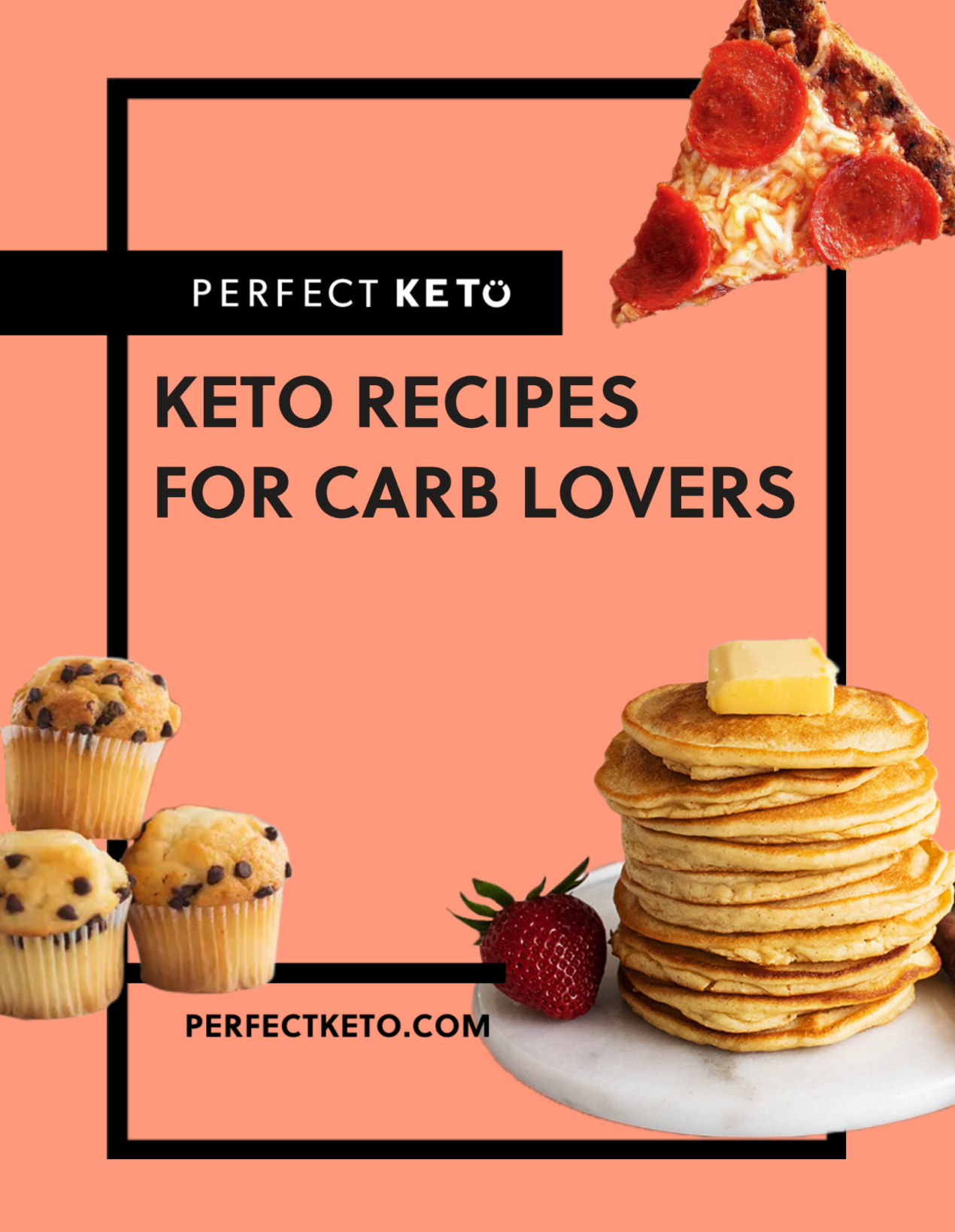When it comes to sweeteners that support health, many people think about honey. Made by bees and marketed as an alternative to refined sugar — honey contains antioxidants, some amino acids, as well as vitamins and minerals (*). But is honey keto, to begin with?
This is an important question since most keto dieters struggle with sugar cravings at the start of their diet. Finding healthy swaps, on top of eating satiating meals and staying hydrated, helps you stay on course.
Here’s what you should know about the carbs in honey and whether you can consume honey on keto.
Is Honey Keto?
While honey may offer unique benefits, its high sugar and high carbohydrate content does not make it a keto-friendly choice. On the keto diet, you need to limit your carb intake to less than 50 grams each day in order to reach ketosis (*). Unfortunately, a serving of honey contains plenty of carbs and may easily break ketosis.
Moreover, honey has a high glycemic index (GI) of 58. There’s not much of a difference between honey and sugar, which has a GI rating of 60. For those who are trying to control their blood sugar level — honey raises blood sugar quickly, which is why you should proceed with caution.
How Many Carbs Does Honey Have?
One tablespoon (21 grams) of honey has 17 grams of total carbohydrates, less than a gram of fiber, and 17 grams of sugar, according to the USDA (*). The majority of the calories from honey are from carbs. Also, there’s no fat or protein in honey.
Given the number of carbs in a serving of honey, it would be hard to fit it into your keto diet without running the risk of exceeding 50 grams in a day.
This is especially true for those who are fond of eating low-carb vegetables and fruits (because carbs can add up) and are trying to keep a strict keto diet for weight loss and therapeutic reasons.
In the next section, we’ll discuss if and when honey on keto is possible.
Can You Eat Honey on Keto?
Honey isn’t likely the best sweetener for keto dieters due to its high carbohydrate and sugar content per serving, although certain individuals may be able to incorporate honey in reasonable amounts without affecting their progress.
You may consume 1 to 2.5 tablespoons of honey in a day, which is equivalent to 17 grams to 42.5 grams of carbohydrates if you are on these keto diet plans:
- Targeted Keto Diet (TKD): This type of keto diet involves consuming your daily carb allowance before or after a workout. Honey is a source of fast-acting carbs, which makes it a helpful tool for boosting your exercise performance.
- Cyclical Keto Diet (CKD): On a CKD, you eat only 20-50 grams of carbs five to six days a week, followed by one to two days of more carbs — called “refeeding” days. You can eat more than two servings of honey and consume other carb sources (e.g. potatoes, quinoa, and beans) during your refeeding days.
Avoid honey while on keto if you:
- Are still very new to the keto diet: Wait until you’ve adapted to keto before experimenting with carbohydrate sources like honey. Adaptation happens after a few weeks of strictly adhering to the diet, and during this time, your body may be able to handle more carbs and easily switch back to a fat-burning mode without the keto flu.
- Have diabetes: People with diabetes may put themselves at risk of blood sugar spikes since their bodies cannot effectively handle the amount of glucose coming in. Keep in mind that repeated spikes can be harmful to your cardiovascular health (*).
- Have fatty liver disease: People with fatty liver disease need to reduce added sugar in their diet to prevent further fat buildup, inflammation, and damage (*).
- Are likely to go overboard with your sweet tooth: This happens when you’re stressed, feeling anxious, and sleep deprived. Instead of turning to honey, have something rich in protein, such as eggs, steak bites, beef jerky, cheese, or nuts.
Important note: Check for ketosis using ketone urine testing strips or a blood ketone meter. If your healthcare provider has prescribed the keto diet, be sure to ask if they’ll allow honey.
Keto-Friendly Honey Substitutes

Does one serving of honey spike your blood sugar or knock you out of ketosis? If the answer is yes, we recommend these alternative sweeteners. The options below are healthier than honey in that they have zero or next to no carbohydrates:
-
- Stevia: Extracted from the Stevia rebaudiana plant, this natural sweetener has no carbohydrates or calories. Surprisingly, it’s 300 times sweeter than sugar.
- Monk fruit: Another natural sweetener, monk fruit also has zero carbs and calories. Note that some monk fruit sweeteners include glucose as an ingredient — so be careful to avoid those.
- Erythritol: This sugar alcohol is better tolerated than other sugar alcohols and is used in many keto baked goods. There’s evidence showing that erythritol may promote satiety, which increases weight loss (*). Erythritol has only 4 grams of total carbs and 0 grams of net carbs in one teaspoon.
- Allulose: This rare sugar can be found in figs and raisins. It contains only 4 grams of total carbs and 0 grams of net carbs. Like erythritol, your body does not metabolize allulose, so it won’t increase your blood sugar.
The Bottom Line
Honey may be known for its nutrient and antioxidant content, but it definitely is not keto-friendly. With 17 grams of carbs in one tablespoon, honey should be avoided — or consumed strategically as part of a targeted or cyclical keto diet.
Remember that just because honey should be limited on keto, doesn’t mean you cannot enjoy sweet treats. Substitutes like stevia, monk fruit, erythritol, and allulose can be used in a variety of recipes. Next time you’re grocery shopping, check for these sweeteners!
